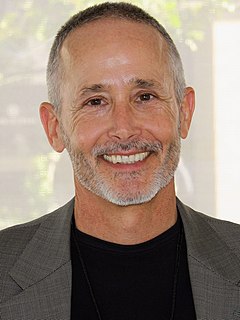A Quote by Steven Saylor
Even the crudest, most derivative novel is an expression of the author's hopes and fears and ideas about good and evil.
Quote Topics
Related Quotes
THE NAME OF THE WIND has everything fantasy readers like, magic and mysteries and ancient evil, but it's also humorous and terrifying and completely believable. As with all the very best books in our field, it's not the fantasy trappings (wonderful as they are) that make this novel so good, but what the author has to say about true, common things, about ambition and failure, art, love, and loss.
When I read a novel that I really like, I feel as if I am in direct, personal communication with the author. I feel as if the author and I are on the same wavelength mentally, that we have a lot in common with each other, and that we could have an interesting conversation, or even a friendship, if the circumstances permitted it. When the novel comes to an end, I feel a certain letdown, a loss of contact. It is natural to want to recapture that feeling by reading other works by the same author, or by corresponding with him/her directly.
There can be no question of selecting in any direction, but of penetrating the whole cosmic law of rhythms, forces and material that are the real world, from the ugliest to the most beautiful, everything that has character and expression, from the crudest and most brutal to the gentlest and most delicate; everything that speaks to us in its capacity as life.
But novels are never about what they are about; that is, there is always deeper, or more general, significance. The author may not be aware of this till she is pretty far along with it. A novel's whole pattern is rarely apparent at the outset of writing, or even at the end; that is when the writer finds out what a novel is about, and the job becomes one of understanding and deepening or sharpening what is already written. That is finding the theme.
Most of us have learned to be dispassionate about evil, to look it in the face and find, as often as not, our own grinning reflections with which we do not argue, but good is another matter. Few have stared at that long enough to accept that its face too is grotesque, that in us the good is something under construction. The modes of evil usually receive worthy expression. The modes of good have to be satisfied with a cliche or a smoothing down that will soften their real look.
In the story of the Creation we read: ". . . And behold, it was very good." But, in the passage where Moses reproves Israel, the verse says: "See, I have set before thee this day life and good, and death and evil." Where did the evil come from? Evil too is good. It is the lowest rung of perfect goodness. If you do good deeds, even evil will become good; but if you sin, evil will really become evil.
No one really knows the value of book tours. Whether or not they're good ideas, or if they improve book sales. I happen to think the author is the last person you'd want to talk to about a book. They hate it by that point; they've already moved on to a new lover. Besides, the author never knows what the book is about anyway.
The fears that assault us are mostly simple anxieties about social skills, about intimacy, about likeableness, or about performance. We need not give emotional food or charge to these fears or become attached to them. We don’t even have to shame ourselves for having these fears. Simply ask your fears, “What are you trying to teach me?” Some say that FEAR is merely an acronym for “False Evidence Appearing Real.” From Everything Belongs, p. 143
When you see evil do not form ideas that are in the likeness of that evil; do not think of the evil as bad, but try to understand the forces that are back of that evil—forces that are good in themselves, though misdirected in their present state. By trying to understand the nature of the power that is back of evil or adversity, you will not form bad ideas, and therefore will feel no bad effects from experiences that may seem undesirable. At the same time, you will think your own thought about the experiences, thereby developing the power of the master mind.



































